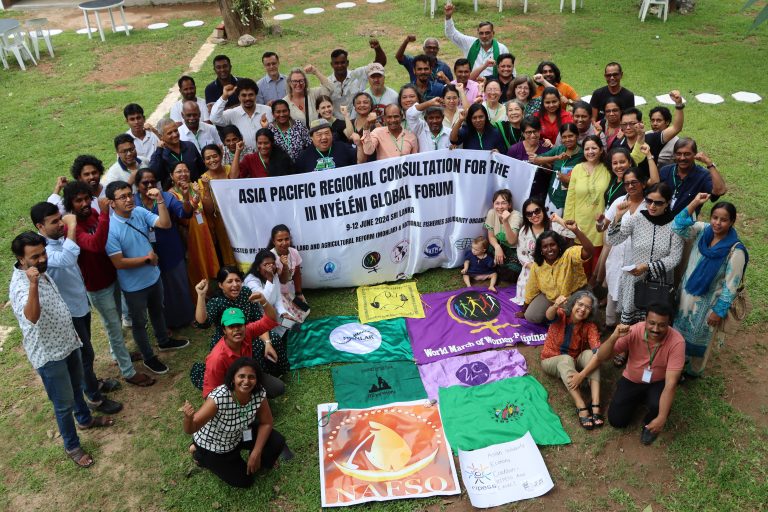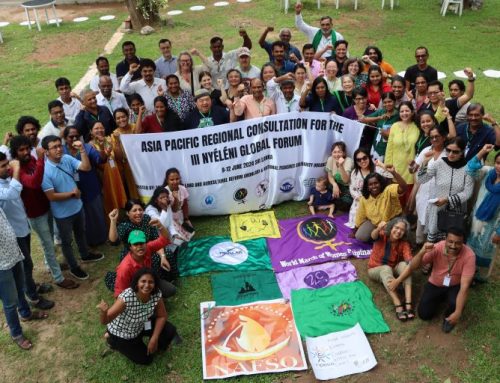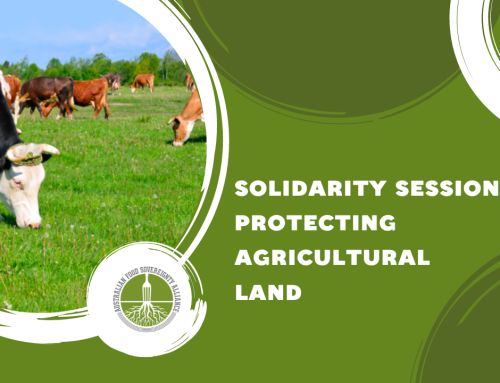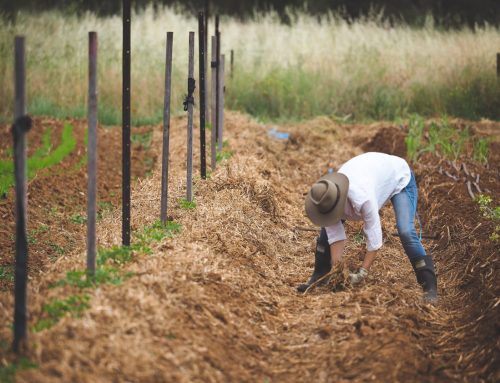The following blog post is an excerpt from Tammi Jonas: Food Ethics. To read Tammi’s full post, head here.
In recent years, there’s been increasing discussion around the fallacy that animal fats aren’t good for us. Following decades of health advice that encourage the consumption of highly processed seed oils over real butter, here we talk about the social and ecological issues related to Ultra-Processed Foods (UPFs) such as margarine and palm oil.
The war against animal fats was launched by corporations and has led to shockingly high rates of diet-related diseases largely attributable to the consumption of ultra-processed foods (UPF), including the ubiquitous ‘vegetable oils’ and their derivatives. From margarine to canola oil, this stuff just isn’t good for you.
Read up on the industrial history of margarine – a.k.a. ‘coal butter’ – for a glimpse into the corporate tactics to turn industrial sludge into everyday staples, and the resulting twin crises of under- and over-nutrition. The definition of ultra-processed foods (UPF) is quite simple – if there are any ingredients in the food-like product that you can’t find in a home pantry, it is UPF. ‘Vegetable’ or seed oils (canola, palm, rice bran, corn, etc) are by definition UPF – they can only be produced in factories. The exceptions are cold-pressed oils such as olive, grapeseed and some sunflower oil, which are the only oils we use to make aioli. We cook everything in pork or beef fat, or butter or ghee, or very occasionally in olive oil.
Palm Oil: Dust to Dust
While basically all monoculture seed and grain crops are ecologically disastrous systems designed to grow non-nutritious ingredients for UPF (or cosmetics, animal feed or biofuels), none matches palm oil, which is in nearly every packaged food product in the supermarket, and makes up 40% of global oil production. 85% is produced in Indonesia and Malaysia, with devastating consequences for biodiversity and the survival of many species of plants and animals, including Orangutans, pygmy elephants and the Sumatran rhino, amongst others. Driving the length of Sarawak in Malaysian Borneo in early 2024, we bore witness to the devastation firsthand. On one stretch between Bitiang and Miri we saw nothing – not one thing – that was not oil palm plantations as far as the eye could see. What really shocked us was the amount of earthworks apparently required – the land is bulldozed and terraced for each line of palms, which take three to four years to fruit. They continue to produce for up to thirty years, and the average life cycle of a plantation is 25 years, after which it is bulldozed and begins again. The erosion from this production model is intense, and you can see it in the colour of the rivers, which the Dayak (the general term for Indigenous Peoples in Sarawak, made up of several distinct Indigenous Peoples) say used to be clear. The silt and fertiliser impacts on the quality of the water to the extent that fish stocks are severely depleted, in addition to the biodiverse jungle foods once bountifully available to the Dayak peoples.
From the destruction of soil, waters, and entire ecosystems, oil palm does not even deliver food as we know it. It is refined, bleached, and deodorised (RBD in industry parlance) to be transformed into a plethora of ingredients, including: Vegetable Oil, Vegetable Fat, Palm Kernel, Palm Kernel Oil, Palm Fruit Oil, Palmate, Palmitate, Palmolein, Glyceryl, Stearate, Stearic Acid, Elaeis Guineensis, Palmitic Acid, Palm Stearine, Palmitoyl Oxostearamide, Palmitoyl Tetrapeptide-3, Sodium Laureth Sulfate, Sodium Lauryl Sulfate, Sodium Kernelate, Sodium Palm Kernelate, Sodium Lauryl Lactylate/Sulphate, Hydrated Palm Glycerides, Etyl Palmitate, Octyl Palmitate, and Palmityl Alcohol. Ultra-processed food – none more so than palm oil – destroys everything in its pernicious path – starting with the traditional lands of Indigenous Peoples and peasants, and consummating its life cycle annihilation by taking people’s health and lives.
One last anecdote about palm oil. While we were in Malaysia, travelling aghast through the plantations, news broke that the Malaysian government had raided a shop selling products labelled ‘no palm oil’ and confiscated all of them. One report explained ‘In Malaysia, it is illegal to sell products with the “No Palm Oil” label which is seen to be discriminatory against products containing the widely used vegetable oil, an economic mainstay for Malaysia.’ Let that sink in for a bit.
Quite unlike what I would have written a decade ago in response to these daily horrors of the modern food system, I’m not going to urge you to boycott products with palm oil (though where possible, that’s great too). And I’m not going to press the individual responsibility to educate yourselves about the insidious complexities of food(ish) production and processing (though clearly I would not discourage anyone – knowledge is power, after all). Instead, I’m going to urge you to join democratic collectives like the Australian Food Sovereignty Alliance or the many local organisations of farmers, allies, hunger activists and more, to add your support to those of us working together to radically transform the food system from the ground up, while lobbying for reforms to protect everyone from the worst ravages of industrial food systems. This is neither the first nor the last time I will recommend collectivising, the best hope we have to ensure a world of radical sufficiency for all, not only those privileged enough to know and access nutritious, ethical, ecologically-sound and socially-just food.
Read more: Ultra-Processed People: The Science Behind Food That Isn’t Food, by Chris van Tulleken. 2023. W.W. Norton & Company.





